In an intimate evening with Polly Jean Harvey MBE, the double Mercury Prize winning artist sang an altogether different kind of tune than you might expect.
Reading from her new book of poetry, Orlam, a coming of age story about a not-girl-not-boy, set within the changing seasons of a mythical Dorset landscape, the songs we heard were odd little twists of nursery rhymes, whisper-sung in a strong West Country accent.
Harvey describes the book in a nutshell as containing “ecstasy and filth, magic and jokes.” The collection of poems conjure a primal, fairy-tale world where a child’s fears take real shape in the sometimes violent and perverted, sometimes wildly beautiful and fantastical village of Underwhelem. The book’s central character Ira-Abel, meets curious figures that range from Elvis-fuelled Christ figures and Chimera to constantly bleeding soldiers and bad babysitters.
She reads the poems – one from each calendar month over the book’s year – in local dialect, with an English translation projected behind her onto parchment for the audience to read. This parallel is set out in the book with West Country lingo on one side of the page and the English version on the other, the type font darkening where the difference in vernacular is at its strongest.
Overlaid is a soundscape of soft folk music, noises from the forest, the creak of a rocking chair or buzz of bees in the garden. She sings “Little Bi-Sheep” – a twee ditty about a sheep having its balls cut off – to the tune of “Little Bo Peep”. Other reminiscent echoes of tradition are heard in “Where the flea sucks, there fuck I” and a particularly brilliant version of the Lord’s Prayer, about “Our Farter, who art unshaven/Arseholed be thy name…”
The evening is stapled by a conversation with renowned author Max Porter, quizzing, cajoling and complimenting Harvey on her hopes, background and history. She tells him of the journey into her poetic process, through the more journalistic approach of The Hollow of the Land where she travelled with photojournalist Seamus Murphy to write about war, into the realms of a more restorative process, returning to Dorset where she grew up and honing in on "one person, one word, one leaf"; playing with form and nursery rhymes to get to the core of her simplest lyric self.
Respectfully acknowledging the difference between poetry and song writing, Harvey describes how seriously she took the process, joining Lambeth Poetry School and the Faber Academy, before beginning a mentorship with the highly acclaimed poet and double winner of the TS Eliot Prize, Don Paterson.
Hearing PJ Harvey speak of Orlam and her creativity more generally as a gift that she wants to give back demonstrates the purity of a true creative spirit. Her sense of curiosity tinged with darkness is something Porter describes in observation: “the child in you is clearly alive and well” - words that chime with the sense of simple wonder and wild fantasy that the book contains.


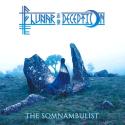

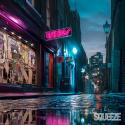
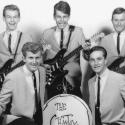
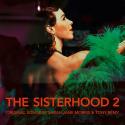
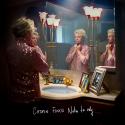


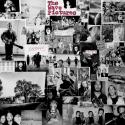



Add comment